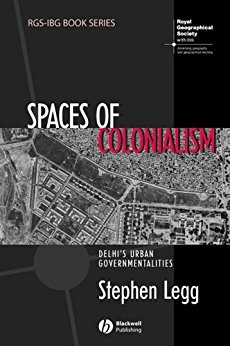This book is unique in that it looks at Delhi as a site of play of power, cooption and contestation between authoritarian governance of colonial power—its utopian imagery at odds with the material practice by the native Indians. What makes the book particularly exciting is the empirical case studies that have been used to explicate the theoretical arguments. Theory no longer remains abstract—in combining theory with practice, the author has been able to challenge some of the constructs about the colonial spaces and their articulation. In doing so, the author interrogates three different paths. The first one is through the highly regulated and hierarchical residential spaces of New Delhi which are also highly policed and cordoned off from the rest to the spaces of Old Delhi. The author calls the latter ‘spaces of surveillance and improvement’. He argues that in order to understand the dialectic and interdependent movement between the two ‘cities’, a second, historio-graphical journey has to be negotiated.
In undertaking this journey, the author draws from the architectural and town planning literature to engage in some of the constructs of postcolonial theories regarding urbanism.
However, according to the author, theoretical orientation alone helped him decode Delhi’s colonial spaces until he incorporated knowledge and power and their transference in the practice and existential materiality. In articulating his propositions, the author makes copious use of Michel Foucault’s work on ‘governmentalisation of the state’.

